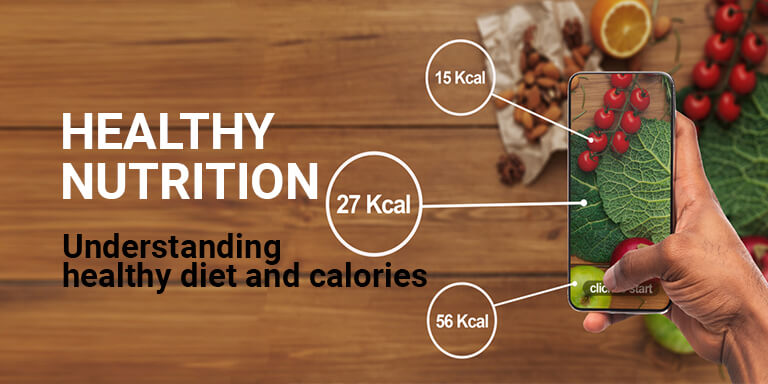Diet is an eating pattern that supplies us the nutrients our body need to function properly. Without proper nutrition, the body gets more prone to diseases, disorders, infections, fatigue and low performance.
Unavailability of proper nutrition may also lead to growth and developmental problems, poor academic performance, and frequent infections in children.
What are calories?
Calorie in a food means the amount of energy stored in that food. The body uses calories from food to sustain, be it walking, thinking, breathing, and all the internal body functions.
An average person needs about 2,000 calories every day to maintain weight, but a better judgement of recommended calorie intake is made basis the age, gender, and physical activity level. Males tend to need more calories than females. Also, people who exercise need more calories than people who don’t.
For balanced nutrition, most of our daily calories should come from fresh fruits and vegetables, whole grains, legumes, nuts and lean proteins.
What are empty calories?
The source of our calories is also important. Food provides us calories through a combination of its nutrients. These nutrients are called macro nutrients, namely, carbohydrate, fat and protein. But there are foods that provide us mainly calories and bare amount of macro and micro nutrients. Calories from such foods are known as empty calories.
Examples of empty calorie foods are cakes, cookies, and donuts. Energy drinks, sodas and fruit drinks with added sugar. Ice cream, chips, fries and many others.
So, to maintain good health, we should limit our consumption of empty calories and instead get our calories from foods that are rich in nutrients.
What to eat for a healthy diet?
A healthy and balanced diet should include multiple nutrients in appropriate quantities such as vitamins, minerals, and antioxidants. Carbohydrates, including starch and fiber. Protein and healthy fat.
A balanced diet includes a variety of foods and these food are classified under different food groups, namely, fruits, vegetables, grains, dairy and protein foods such as meat, eggs, fish, beans, nuts and legumes.
Foods to avoid on a healthy diet
Certain foods either do not provide us any useful nutrients at all or their unhealthy calories far outweigh their nutritive benefits. Foods to avoid or limit on a healthy diet include highly processed foods, refined grains, added sugar, red and processed meats, fast food, alcohol and trans fat.
Conclusion
The bottom line is, a varied and healthy diet usually contains plenty of fresh and whole foods, and limits the intake of processed foods. It not only helps in proper development and functioning of the body but also prevents the risk of developing diseases.

